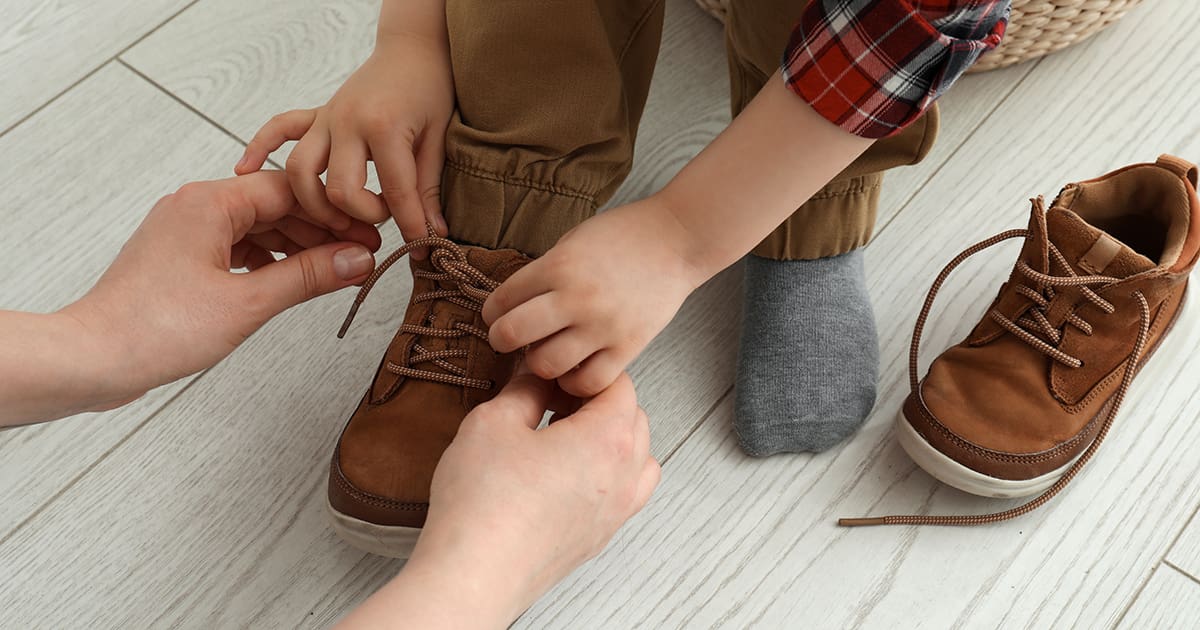Share this Post

Imitation is a powerful tool for learning in early childhood. It’s how children explore the world, develop new skills, and form meaningful connections with others. For children with autism, however, imitation can often be a challenging area of development. Difficulties with imitation can impact their ability to learn language, develop social skills, and engage in play.
At CST Academy, we recognize the importance of imitation skills and how they form the foundation for learning and connection. Through individualized, evidence-based strategies, we work closely with children and families to help build these essential skills in a supportive and nurturing environment.
Why Imitation Skills Are Important for Children with Autism
Imitation is much more than simply copying others—it’s a vital developmental milestone that supports learning across many areas. Children naturally learn by observing and imitating behaviors, gestures, and actions. Imitation helps in the following ways:
Language Development
Children first learn to communicate by imitating sounds, words, and phrases. Imitation is a stepping stone for building expressive and receptive language skills.
Social Interaction
Through imitation, children learn how to interact with others, whether it’s sharing a laugh, clapping during a song, or mimicking facial expressions during play.
Play Skills
Imitation allows children to engage in pretend play and explore creative activities, fostering cognitive development and problem-solving abilities.
Learning Everyday Routines
Imitation helps children pick up everyday behaviors like waving goodbye, brushing teeth, or following instructions in a group setting.
For children with autism, challenges in imitation may stem from differences in sensory processing, attention, or social engagement. With the right support, these children can make significant progress in developing imitation skills that unlock their potential for learning and connection.
How CST Academy Helps Children Develop Imitation Skills
At CST Academy, boosting imitation skills is a key focus of our therapeutic preschool programs. We use evidence-based strategies tailored to each child’s unique needs to promote growth in a compassionate and engaging way. Here’s how we do it:
- Individualized Assessments
Every child begins their journey at CST Academy with a comprehensive assessment to identify their strengths, challenges, and developmental goals. This personalized approach ensures that therapy focuses on building the skills most relevant to each child. - Play-Based Learning
Play is at the heart of what we do. Through activities like singing, dancing, and pretend play, we create opportunities for children to observe and imitate actions in a fun, low-pressure environment. - Modeling and Prompting
Our therapists use modeling and prompting techniques to encourage imitation. For example, a therapist might clap their hands or make a silly sound and encourage the child to copy. These activities help children practice and refine their imitation skills. - Reinforcement and Praise
Positive reinforcement is a powerful motivator. When a child successfully imitates an action or sound, our therapists provide immediate praise and encouragement to boost their confidence and willingness to try again. - Multidisciplinary Approach
At CST Academy, our occupational, speech, and behavioral therapists collaborate to integrate imitation skill-building into all areas of therapy. This ensures that children are practicing imitation in a variety of contexts, from motor skills activities to language development exercises. - Parent Collaboration
We believe parents are essential partners in their child’s progress. Our team provides families with strategies and resources to practice imitation skills at home, creating consistency and reinforcing growth outside of therapy sessions.
Engaging Activities to Boost Imitation Skills at Home
Parents can play a significant role in helping their child develop imitation skills. Here are some simple, engaging activities to try:
- Action Songs: Sing songs like “Itsy Bitsy Spider” or “If You’re Happy and You Know It” and encourage your child to imitate the accompanying actions.
- Mirror Play: Stand in front of a mirror with your child and make funny faces or simple movements for them to copy.
- Pretend Play: Use toys or household items to model simple pretend actions, such as pretending to drink from a cup or talking on a toy phone.
- Follow-the-Leader Games: Take turns leading a game where one person performs an action (e.g., jumping, clapping, spinning) and the other imitates.
- Everyday Routines: Model simple actions during daily activities, like waving goodbye, clapping after a story, or pointing to an object of interest, and encourage your child to do the same.
The Benefits of Building Imitation Skills
Focusing on imitation skills can have a profound impact on a child’s overall development. Some of the key benefits include:
- Improved Communication: Imitation is a gateway to learning language, gestures, and conversational skills.
- Enhanced Social Engagement: Children who imitate are better able to connect with peers and adults, fostering positive relationships.
- Stronger Cognitive Skills: Through imitation, children develop problem-solving abilities and learn new concepts.
- Increased Independence: Imitation helps children pick up everyday routines and life skills, boosting their confidence and autonomy.
At CST Academy, we celebrate every milestone, knowing that each step forward represents a brighter future for the children and families we support.
Why Families Choose CST Academy
CST Academy is dedicated to providing compassionate, individualized care for children with autism and developmental delays. Families trust us because:
- Our Expert Team: Our therapists are highly trained in evidence-based approaches to build imitation skills and support overall development.
- A Nurturing Environment: We create a safe, inclusive space where children feel empowered to explore, learn, and grow.
- Collaborative Approach: We partner with parents to ensure progress extends beyond therapy and into daily life.
- Tailored Programs: Every child receives a customized plan designed to meet their specific goals and needs.
A Parent’s Perspective on Imitation Skills Success
One parent shared their experience:
“Before starting at CST Academy, our son rarely imitated actions or sounds. Within weeks of therapy, he started clapping along to songs and pretending to feed his stuffed animals. Seeing him engage and learn has been incredible, and we’re so grateful for the team at CST Academy.”
Take the Next Step with CST Academy
If your child struggles with imitation skills, CST Academy is here to help. Our caring and experienced team is dedicated to creating a supportive environment where your child can develop the skills they need to thrive.
Contact us today to learn more about our programs and how we can support your child’s journey toward growth and connection.
Discover Our Pediatric Therapy & Autism Care
ABA Therapy
Support for children with autism.
Diagnostic Evaluation
Expert assessments to identify child needs.
Pediatric Therapy Services
Speech, Occupational, Feeding, and Physical Therapy.
Therapeutic Preschool & Kindergarten
A classroom environment designed for early learners with unique needs.

How CST Academy Strengthens Imitation Skills in Children with Autism
Foundational Autism Care That Builds Social and Learning Connections
Developing imitation skills in children with autism is a key step in supporting communication, social interaction, and overall learning. At CST Academy, our expert clinicians use evidence-based strategies to build imitation through modeling, play, and repetition as part of our personalized autism care plans. By fostering these skills in a supportive, engaging environment, we help children connect, learn, and grow with confidence.

Find the Best Care for Your Child




